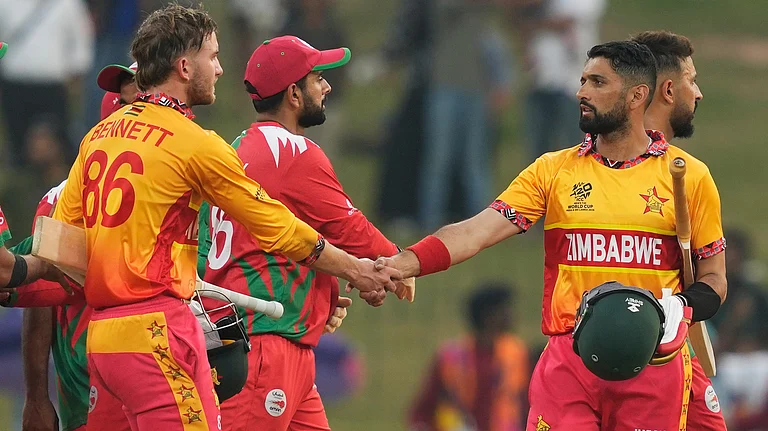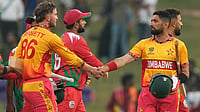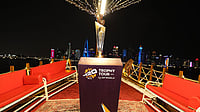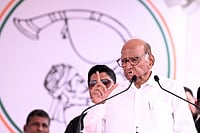Prime Minister Narendra Modi on Thursday unveiled a pocket map of Kartavya Path that carries information on various State Houses and historic cultural institutions located in the vicinity of the India Gate complex.
'Rajpath' -- the ceremonial boulevard of the national capital that connects the Raisina Hill complex to India Gate -- was renamed 'Kartavya Path' last September and inaugurated as part of the revamped Central Vista Avenue by Modi shortly after.
The pocket map was unveiled during the International Museum Expo being held from May 18-20 at Pragati Maidan.
Modi inaugurated the event in which around 1,200 museums are participating in various segments. It coincided with International Museum Day, which is observed on May 18.
The pocket map has information on the various State Houses such as Kota House, Hyderabad House and Jaipur House -- elegant structures built during the British era around the India Gate Hexagon, and cultural spaces and the Union Ministry of Culture's institutions, officials said.
These Houses were built by the erstwhile princely states that, after Independence, gradually acceded to the Union of India, many of which now house government institutions.
Among other stately Houses, Hyderabad House is used to host foreign dignitaries, the National Gallery of Modern Arts is located in Jaipur House and Bikaner House hosts a culture hub and cafes.
The pocket map also contains details on the National Museum and the National Archives of India, institutions which come under the ambit of the Union Ministry of Culture.
Rajpath began its journey as Kingsway, a central axis built as part of New Delhi after the imperial seat of the administration was shifted here from Calcutta, having been announced by King George V at the 1911 Delhi Durbar.
From witnessing the dawn of Independence to playing host to annual Republic Day celebrations over the last seven decades, Rajpath has witnessed colonial rule and also basked in the glory of a free, democratic nation.
Last year, as he inaugurated the revamped Central Vista with Rajpath and the lawns flanking the boulevard, Modi called the stretch of road a symbol of India's "slavery". He also unveiled a statue of Netaji Subhas Chandra Bose at India Gate.
The renaming had triggered a sharp reaction from members of many opposition parties, including the Congress and the TMC.Renaming the historic Rajpath to Kartavya Path was "pure politics" as 'Rajpath' itself is a Hindi word, senior Congress leader Shashi Tharoor said.
Historians have argued that the 'Raj' in 'Rajpath' refers to the idea of a State and not 'Raja' or king. Recently, modular panels bearing the map of Kartavya Path have been installed in the Central Vista area and barricades put up near India Gate also carry the name 'Kartavya Path'.
Modi on Thursday also unveiled a "virtual walkthrough" of the upcoming national museum, to be housed in the British-era North and South Blocks here.
North Block and South Block form part of the Central Secretariat on the Raisina Hill complex, the centrepiece of New Delhi that was designed by Sir Edwin Lutyens and Sir Herbert Baker.
Prominent roads such as Kingsway and Queensway, which run perpendicular to each other in the heart of the national capital, were renamed 'Rajpath' and 'Janpath', respectively, among several other British-era streets, soon after Independence.


























